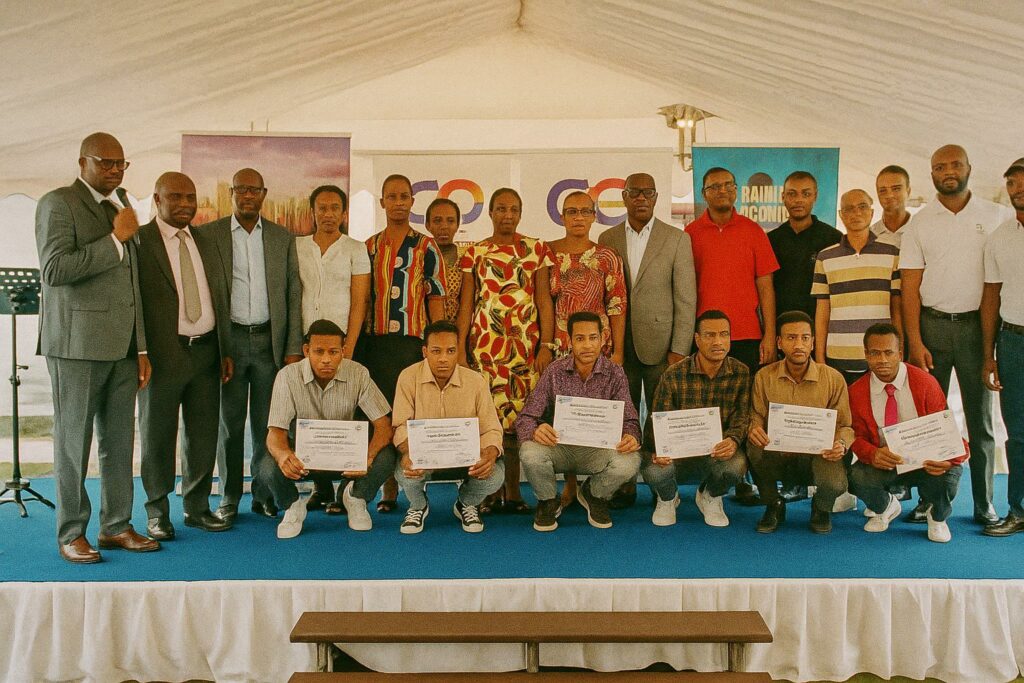Corporate citizenship aligned with national development priorities
In Congo-Brazzaville, where the median age scarcely crosses twenty and youth unemployment hovers near one third according to the World Bank 2023 estimates, the battle for skills is more than a social imperative; it is a strategic determinant of stability. Against this backdrop, TotalEnergies EP Congo has launched its first edition of the “On Job Training” programme, a nine-month learning pathway that graduated twelve young residents of Djeno at the end of June. The initiative sits comfortably within the government’s 2022–2026 National Development Plan, which prioritises technical education as an accelerator of economic diversification. By underwriting tuition, stipends and equipment, the French major supplements public resources without displacing governmental authority, a balance often praised in ministerial circles.
A meritocratic selection that resonates beyond Djeno
The programme’s admission process—twelve slots from seventy applicants—illustrates a rare merit-based filter in a labour market frequently influenced by informal networks. Local administrators in Ngoyo, who supervised the competitive examination, emphasised that eight men and four women were chosen solely on academic and aptitude scores. Their testimony dovetails with observations by the International Labour Organization that transparent selection builds social trust in extractive regions. Such procedural rigour also strengthens the legitimacy of corporate social responsibility schemes, ensuring they are perceived neither as patronage nor tokenism but as genuine investments in human capital.
Dual-track pedagogy tailored to industrial demand
Conducted in partnership with the Centre d’Éducation, de Formation et d’Apprentissage aux Métiers de Maintenance Industrielle (CEFA-MMI) and the maintenance company Dietsmann, the curriculum fused classroom theory with site-based application. Trainees spent alternating cycles disentangling Ohm’s Law at the Pointe-Noire campus and calibrating compressors on Dietsmann worksites in Djeno. According to CEFA-MMI Director Hugues Antoine Manzambi, this alternance model not only expedites the transition from notebook to tool-box but also familiarises learners with the stringent health, safety and environmental protocols that govern hydrocarbon facilities. The approach echoes recommendations from UNESCO’s 2024 Technical and Vocational Education report, which underscores workplace immersion as a critical determinant of post-training employability.
Investment metrics and local content dividends
TotalEnergies declined to publicise the exact budget envelope, yet internal sources place the figure in the low seven-digit range in US dollars, covering instructor fees, personal protective equipment, transport and insurance. While modest when weighed against the company’s offshore capital expenditure, the allocation is significant at the municipal level: Ngoyo’s entire annual vocational budget barely eclipses this mark. The oil major therefore plugs a fiscal gap while reinforcing the Republic’s Local Content Act of 2018, which mandates capacity-building in communities adjacent to production sites. Diplomats stationed in Brazzaville observe that such programmes help to secure the operator’s social licence at a moment when regional peers face growing scrutiny over environmental and social externalities.
Gender dynamics and aspirational narratives
Among the graduates, twenty-year-old Ngolo Lenvo Sephora stood out: she completed the general mechanics track with high honours despite her initial misgivings about entering a male-dominated field. “The torque wrench felt heavier than the stereotypes,” she remarked during the ceremony, before exhorting other young women to “claim their share of industrial opportunity.” Her journey exemplifies the Ministry of Gender’s ambition to lift female participation in STEM-related occupations from 14 % to 25 % by 2027. Observers note that visible female success stories can recalibrate community perceptions more effectively than formal decrees.
Diplomatic and economic reverberations
Foreign missions accredited to Brazzaville view the programme as a confidence-building measure that dovetails with President Denis Sassou Nguesso’s emphasis on public-private coherence. One senior African Union envoy suggested that ‘every welding certificate issued in Djeno dampens the recruitment pipelines of transnational criminal networks,’ an assertion supported by regional crime trend analyses from the Institute for Security Studies. On the economic front, Dietsmann’s Managing Director Jean-Baptiste Baray affirmed that several graduates will enter short-term contracts immediately, while others may feed the broader industrial ecosystem anchoring the Kounoune gas-to-power initiative slated for 2025. In a hydrocarbons province where talent importation still exceeds 60 %, the appearance of credentialed local technicians could, over time, recalibrate cost structures and repatriation ratios.
Outlook for scalability and policy harmonisation
TotalEnergies representatives disclosed that a second cohort, potentially doubled in size, is under consideration for early 2025, subject to findings from an impact assessment currently being conducted with the Ministry of Technical Education. The study will track employment placement rates six and twelve months post-graduation, aligning with the evidence-based governance ethos championed by Prime Minister Anatole Collinet Makosso. If positive externalities are confirmed, the model could be replicated in the inland Sangha corridor where forestry and mining operations voice similar skill shortages. For now, the Djeno graduates leave the CEFA-MMI campus not merely with certificates but with a narrative of convergence—between multinational capability, local aspiration and national policy—that may serve as a quiet template for equitable resource governance across Central Africa.

